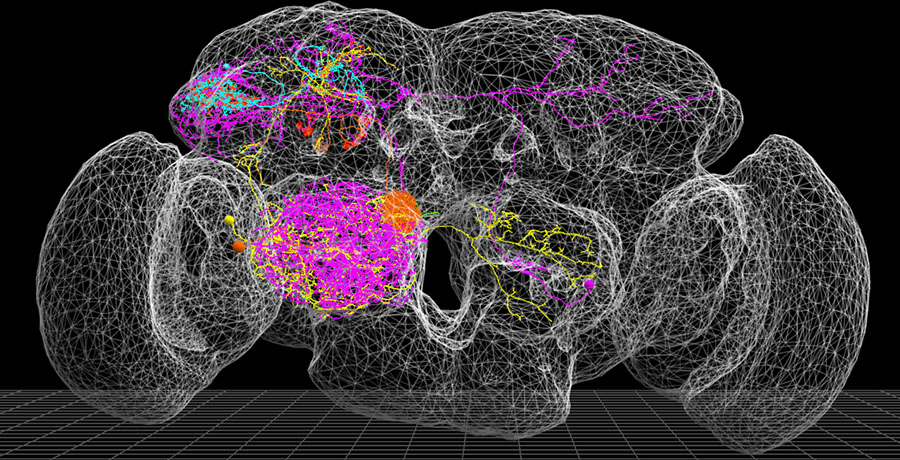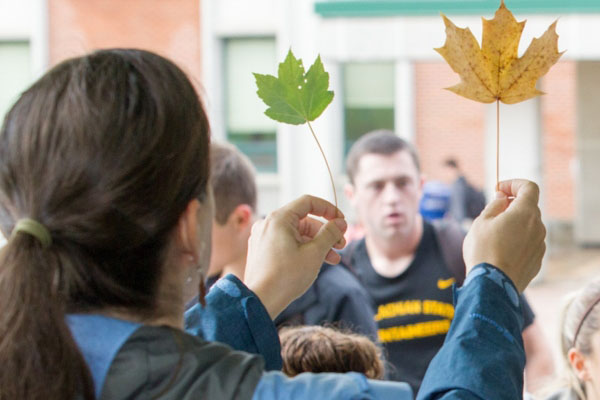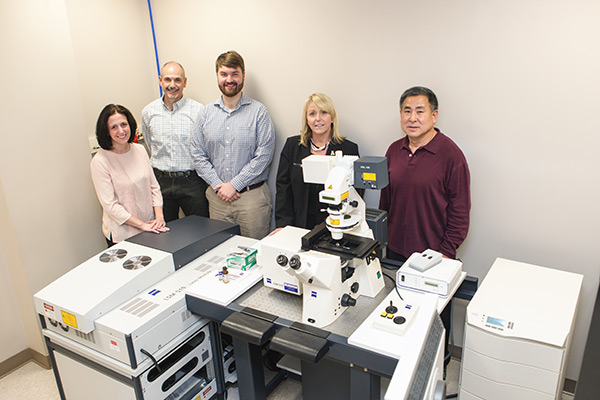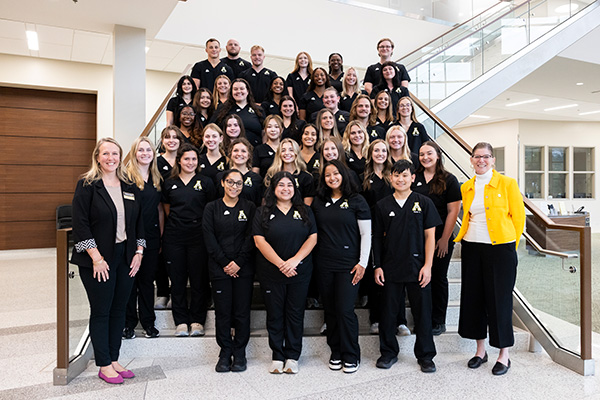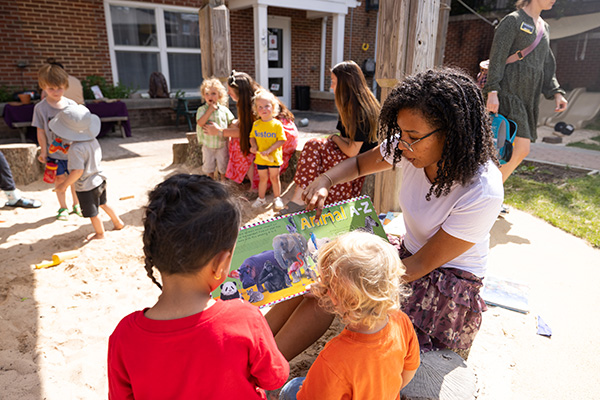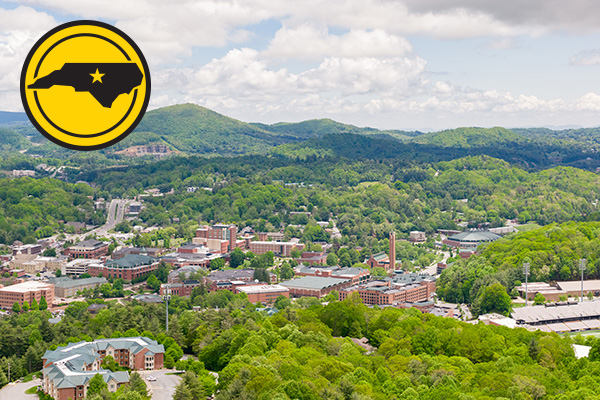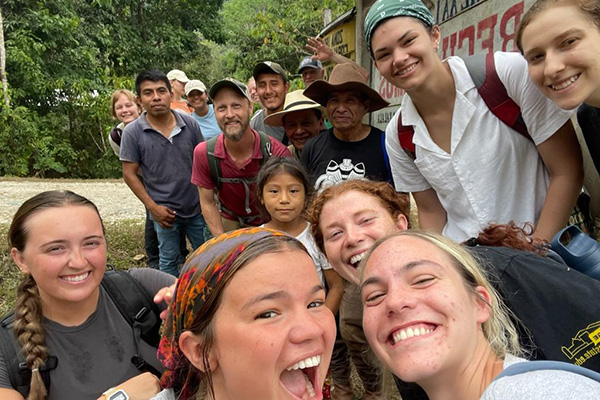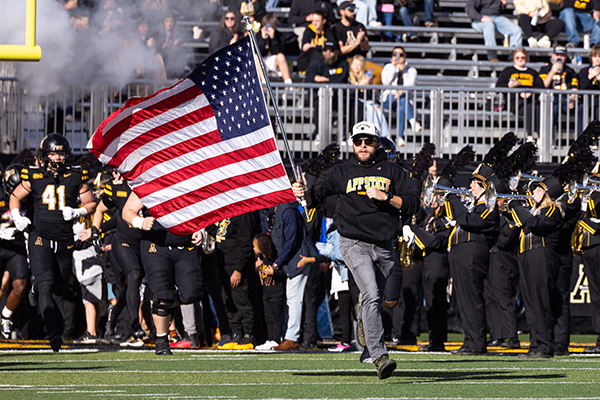BOONE, N.C. — The brain of a common fruit fly may seem insignificant — a speck no bigger than the period at the end of this sentence — yet its approximately 130,000 neurons play an important role in training the next generation of neuroscientists, both at Appalachian State University and other U.S. higher education institutions.
This training is part of a five-year, App State-led project called Connectomes for Undergraduate Neuroscience Education and Learning (CUNEL), which aims to enhance the accessibility of neuroscience education and incorporate cutting-edge data and research tools into undergraduate neuroscience courses to enhance student learning.
Supported by nearly half a million dollars in National Science Foundation funding, the CUNEL project is headquartered at App State under the leadership of Dr. Andrew Bellemer, associate professor of molecular neuroscience and assistant chair of faculty administration in the Department of Biology. It began in fall 2022 and will conclude in 2027.
Making neural connections with big data
To achieve the project goal, Bellemer is recruiting and training a network of undergraduate neuroscience instructors from colleges and universities across the nation. These instructors will incorporate laboratory protocols into their teaching that provide students with authentic research experiences in connectomics — a growing field of neuroscience that seeks to create comprehensive maps of synaptic connectivity within a nervous system.
CUNEL students at App State and other network institutions will follow the established lab protocols to analyze a data set consisting of the entirety of the fruit fly brain — 21 million images generated through electron microscopy. They will use the data to reconstruct the anatomy of individual neurons and analyze how they communicate with one another via synapses.
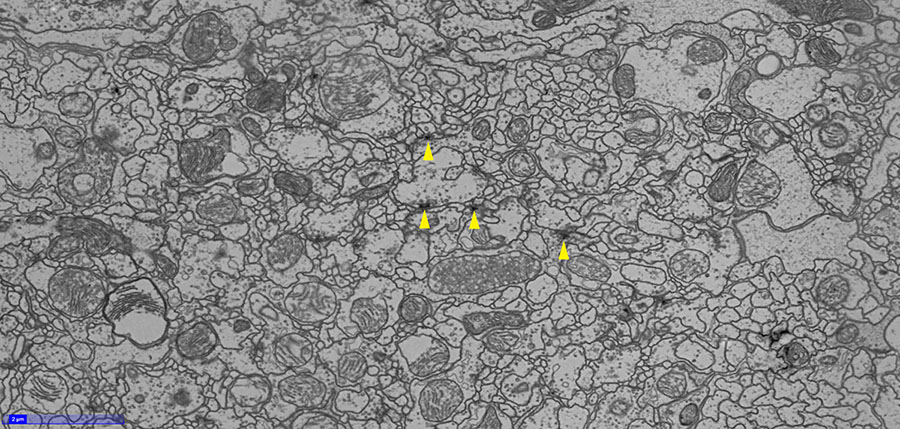
This image, generated using an electron microscope, shows hundreds of neurons in a fruit fly brain — all of which are contained within a cross section that is a fraction of the thickness of a sheet of paper. The yellow arrows shown above indicate the position of synapses, or points of communication between individual neurons. Image courtesy of Dr. Andrew Bellemer
According to Bellemer, this work is part of a large-scale, collaborative effort in the scientific research community to fully reconstruct the anatomy and connectivity of the fruit fly brain in order to understand how neural circuits ultimately control behavior.
“The future of scientific research involves large and complicated data sets, which often require work with powerful computing and artificial intelligence to process,” Bellemer explained. “I’m enthusiastic about giving undergraduate students the opportunity to gain these needed research skills.”
Students will use the exact same data sets and analysis tools as the research labs engaged in this project — including the Full Adult Fly Brain (FAFB) data set and the Collaborative Annotation Toolkit for Massive Amounts of Image Data (CATMAID) software platform — and will create data that have the potential to be incorporated into ongoing research efforts.
Because the analyses can be completed online, the project creates “a tremendously accessible way for students to gain research experience,” Bellemer shared. “Neuroscience classes at different colleges and universities will be able to collaborate in real time on solving some of these brain mapping problems.”
As the project progresses, students may have the ability to add the data they collect to databases shared by the scientific community, Bellemer said, as well as highlight the data on their resume or curriculum vitae.
“It’s really meaningful for a student to be able to point to data that’s part of the permanent scientific record and say ‘I did this,’” Bellemer said.
Co-directors for the CUNEL project are Dr. Ken Colodner, a cellular and molecular neuroscientist and an associate professor of neuroscience and behavior at Mount Holyoke College in Massachusetts, and Dr. Divya Sitaraman, a behavioral neuroscientist and an assistant professor at California State University, East Bay.
What do you think?
Share your feedback on this story.
About the Department of Biology
The Department of Biology is a community of teacher-scholars, with faculty representing the full breadth of biological specializations — from molecular genetics to landscape/ecosystem ecology. The department seeks to produce graduates with sound scientific knowledge, the skills to create new knowledge, and the excitement and appreciation of scientific discovery. Learn more at https://biology.appstate.edu.
About the College of Arts and Sciences
The College of Arts and Sciences (CAS) at Appalachian State University is home to 17 academic departments, two centers and one residential college. These units span the humanities and the social, mathematical and natural sciences. CAS aims to develop a distinctive identity built upon our university's strengths, traditions and locations. The college’s values lie not only in service to the university and local community, but through inspiring, training, educating and sustaining the development of its students as global citizens. More than 6,800 student majors are enrolled in the college. As the college is also largely responsible for implementing App State’s general education curriculum, it is heavily involved in the education of all students at the university, including those pursuing majors in other colleges. Learn more at https://cas.appstate.edu.
About Appalachian State University
As a premier public institution, Appalachian State University prepares students to lead purposeful lives. App State is one of 17 campuses in the University of North Carolina System, with a national reputation for innovative teaching and opening access to a high-quality, cost-effective education. The university enrolls more than 21,000 students, has a low student-to-faculty ratio and offers more than 150 undergraduate and 80 graduate majors at its Boone and Hickory campuses and through App State Online. Learn more at https://www.appstate.edu.
